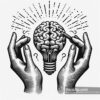language meaning
language :
system of communication, tongue
noun
▪ English is a widely spoken language.
▪ English is a widely spoken system of communication.
▪ She is studying the Japanese language.
▪ She is studying the Japanese system of communication.
paraphrasing
▪ dialect – language
▪ tongue – language
▪ vernacular – language
▪ speech – language

Pronunciation
language [ˈlæŋɡwɪdʒ]
The stress is on the first syllable 'lan' and sounds like 'LANG-gwij'.
Common phrases and grammar about language
language - Common meaning
noun
system of communication, tongue
Part of Speech Changes for "language"
▪ linguistics (noun) – the study of language
▪ linguist (noun) – someone who studies language
▪ linguistic (adjective) – related to language
▪ multilingual (adjective) – using multiple languages
Common Expressions with "language"
▪ foreign language – a language that is not your native one
▪ native language – the first language you learned
▪ official language – the language used by the government
▪ body language – the way you communicate with your body
Important examples of language in TOEIC
Vocabulary examples from the TOEIC test
In TOEIC word questions, language is used to refer to a system of communication used by a particular country or community.
Example of a confusing word: dialect (a regional variety of a language)
Grammar examples from the TOEIC test
In TOEIC grammar questions, language is used as a noun and may function as a subject or object in sentences.
language
Idioms and fixed expressions in TOEIC
body language
means 'nonverbal communication with your body'.
speak the same language
means 'to understand each other clearly'.
Differences between similar words and language
language
,
dialect
differences
language refers to a broad system of communication, while dialect refers to a regional or social variation within a language.
language
,
language is a system of communication, while tongue can refer to the physical organ or a specific way of speaking.
differences
Words with the same origin as language
The origin of language
The word 'language' comes from the Latin 'lingua', meaning 'tongue'. It evolved to signify a system of communication.
Word structure
language can be divided into prefix, root, and suffix: the root 'lingua' (tongue) and the suffix '-age' (denoting a collective noun), meaning 'the system of communication related to the tongue'.
Words with the same origin
The root of language is 'lingua'. Words with the same root include linguistics, linguist, bilingual, and translate.






